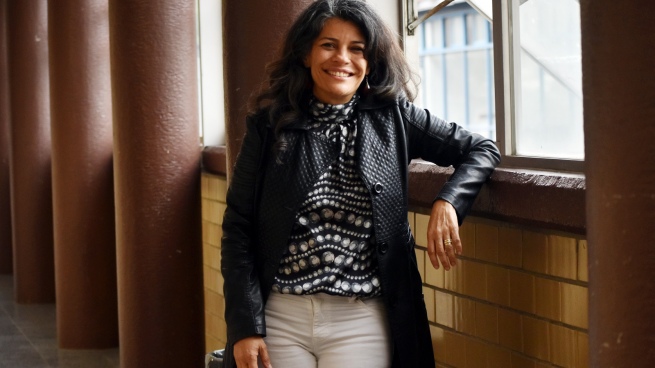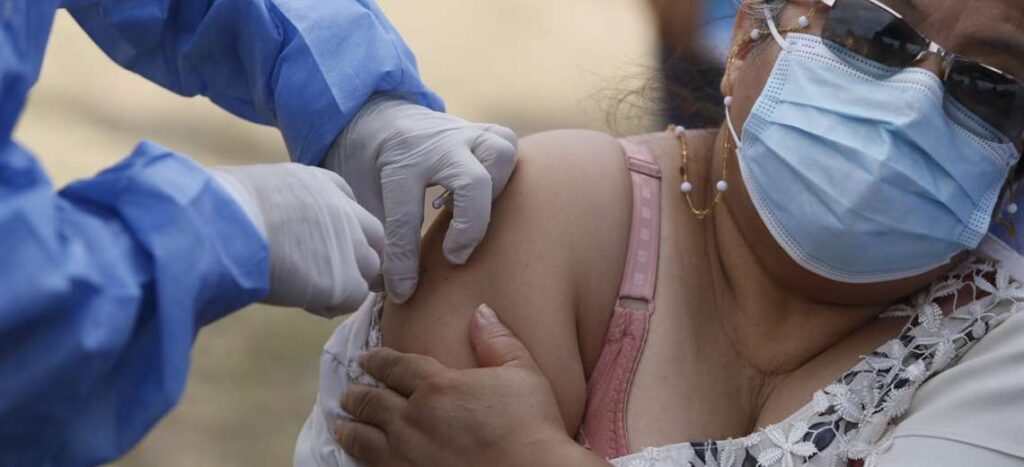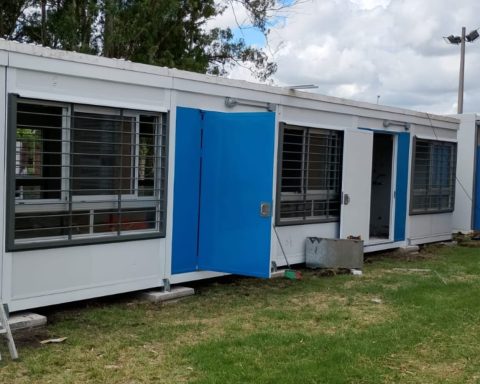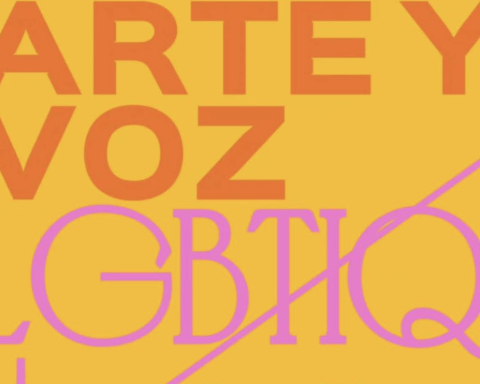In Argentina there are many femicides of girls between the ages of 18 and 23 who are building their autonomy, assured the lawyer Luz Patricia Mejía, technical secretary of the Follow-up Mechanism of the Convention of Belém do Pará, who described this situation as “very alarming” and He highlighted the role of the pandemic in triggering “the rates of violence against women.”
Within the framework of the 9th Latin American and Caribbean Conference on Social Sciences that took place this Friday and Saturday in Mexico, Mejía maintained in a telephone conversation with Télam that although violence is a universal and historical phenomenon, “there are contexts that favor the conditions for an increase in its manifestations”.
Thus, isolation and confinement have “a more severe impact on women”, which translates into “an exponential increase in male violence”said Mejía at the conference organized by the Latin American Council of Social Sciences (Clacso) that focused on inequalities.
“Now we are coming out of Covid-19, but not from violence or discrimination. On the contrary, neither my daughters nor our daughters’ daughters are going to see a change, unless there is a determined push from the States to let there be a real transformation”
During her presentation, the Venezuelan-born lawyer with a master’s degree in Public and International Law highlighted, on the one hand, “all the burdens that were evident that women had during the coronavirus pandemic”, with respect to care tasks.
For another, highlighted the increase in violence against women “at a time when most States were dealing with the pandemic.”
In this sense, situations were evidenced where “aggressors were sent to live with women, there were calls for help without the ability to access protection systems and cases of child pregnancy in girls.”
“In Argentina, in addition to the historical violence, what we see with concern is that many of the cases of fatal and femicidal violence that are registered are against young girls between 18 and 23 years old who are doing their autonomy, and that is very alarming“said the lawyer.

In turn, Mejía stressed that, although there is talk of “an unprecedented pandemic” in reference to Covid-19, “we did have a precedent, because what happens in the context of violence in the region had already happened. in Africa with the Ebola virus.
Currently, Mejía works as technical secretary in the Follow-up Mechanism of the Convention to Prevent, Punish and Eradicate Violence against Women -also known as the Convention of Belém do Pará-, a body formed in 1994 that addresses violence against women and evaluates the situation of the States that are part of it.
“As the technical secretary of the Belém do Pará Convention, we do work with all the States, and I think that now many of the things that were recommended to Argentina are being worked on and implemented“, held.
In turn, “the measures taken in Argentina together with the movement Not one less have a ‘domino’ impact in the region,” he added.
However, she stressed that the evaluation is not linear, but “on the issue of feminism and rights, there are advances and setbacks in the region.”
“Now we are coming out of Covid-19, but not from violence or discrimination. On the contrary, neither my daughters nor our daughters’ daughters are going to see a change, unless there is a determined push from the States to let there be a real transformation”Mejia said.
On the other hand, the lawyer highlighted the impact of regional events such as Clacso, which allow “sharing experiences and continuing to delve into the theoretical issues that allow the construction of public policy.”
at the convention “You can see what Colombia, Argentina and Mexico are doing and the models that are evaluated, the challenges and how we solve them. It is a great contribution from knowledge to a gender and public policy perspective”defined in dialogue with Télam.
-
Attention, containment and advice in situations of gender violence
- By free call 24 hours Line 144
- By WhatsApp +5491127716463
- By mail to [email protected]
- Downloading the apps
Mejía also referred to the speeches against feminism and argued that “we are in a time of very clear power dispute and feminism is positioned as the vanguard of the dispute.”
And added that this generates “resistance from neoconservatism movements, such as the ‘Don’t mess with my children’ movement, which have an important presence and manage to capture attention”.
“It is feminism disputing power and that dispute generated these reactions,” said the jurist, who stressed that the feminist movement in the region is in a moment of “transition, which is not being easy,” but that “it is on the street, putting up a fight.”
On the other hand, she pointed out that although sexual and domestic violence are the best known, “now the range of violence is expanding and we can see that it occurs in many more areas, such as education and politics, because women dispute power and there is violence in the public sphere that was not previously understood in this way”.
“We have one digital violencewhich was evidenced by the overexposure of girls to virtual violence, the reproduction of gender stereotypes and online violence, when their image is reproduced,” she pointed out.
Faced with this, he argued that today “we are more aware of violence and how it operates”, and in turn “we are no longer disconnected, there is no way not to see what is happening.”
“The gender perspective and feminism are impacting cultural changes and legislation, and this has a process of cultural transformation in younger people,” she concluded.
















